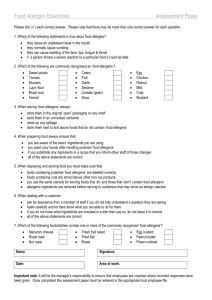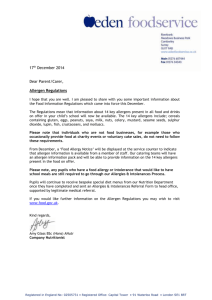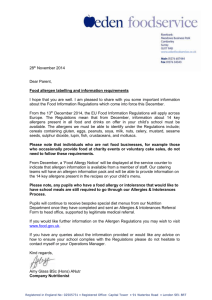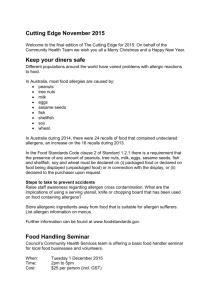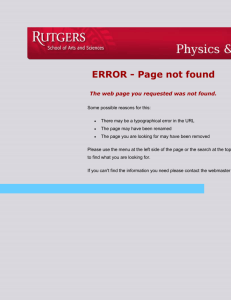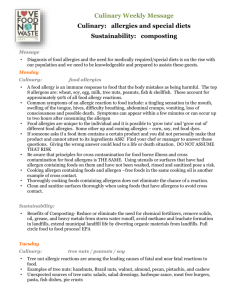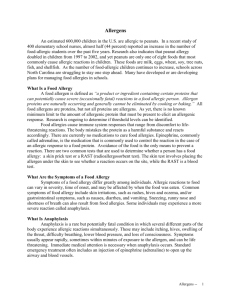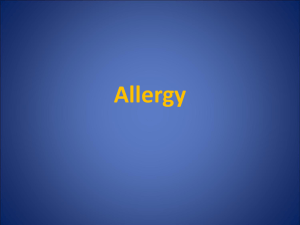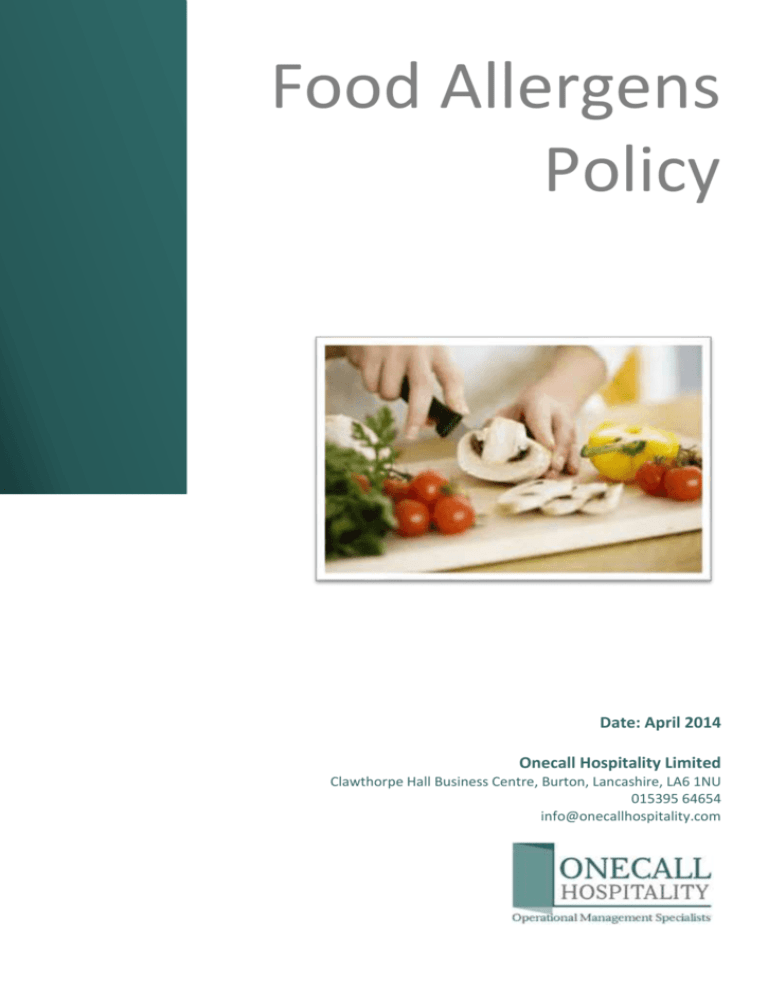
Food Allergens
Policy
Date: April 2014
Onecall Hospitality Limited
Clawthorpe Hall Business Centre, Burton, Lancashire, LA6 1NU
015395 64654
info@onecallhospitality.com
FOOD ALLERGEN POLICY
What you need to know about food allergens and intolerance
Food businesses that are selling food prepared or wrapped on site are not currently required to indicate whether it
contains ingredients that people may be allergic to, such as those listed below. For those customers with allergy’s
this can make it extremely difficult to eat out.
It is important that businesses operating in the hospitality industry know about food allergens and ensure that all
employees are armed with the relevant information and necessary training to help customers make informed
decisions about dishes, so they can choose whether to eat them or not.
New rules introducing a legal requirement to provide allergen information for foods sold non-prepackaged will come
into force in December 2014.
Why is this important?
Around 10 people die every year in the United Kingdom from an allergic reaction to food; the numbers of people
admitted to hospital are far greater. In the majority of cases any reaction comes from restaurant or takeaway food.
It is against European law to place unsafe food on the market. This includes the information a business makes
available to its customers, any menu descriptions, price details and any details provided directly by the front of
house staff.
It is extremely important that businesses get this right, if they don’t people with food allergens could become
extremely ill. Businesses must ensure they provide all food allergen information as and when requested, if staff are
asked about a specific food contained in a dish then they must be able to provide all the relevant details. An
employee of the business should never try to assume or guess the answer, if they don’t know then they need to find
out.
List of foods that can cause and allergic reaction
Cereals containing gluten
Celery
Crustacea
Lupin
Molluscs
Peanuts (sometimes known as groundnuts)
Nuts, including almonds, hazelnuts, walnuts, Brazil nuts, cashews, pecans, pistachios and macadamia nuts
Fish
Shellfish
Sesame seeds
Eggs
Milk
Soya
Mustard
Sulphur dioxide and sulphates at levels above 10mg/litre expressed as SO₂
This is a list of the most common within the EU and there may be more added to this list in the future.
Allergens affect people differently and so they need to avoid certain foods, e.g. gluten which is a protein found in
wheat, rye, barley and oats or lactose, the sugar found in milk.
Steps you can take
Make sure that information is readily available and clearly displayed. A notice should be displayed on the menu to
inform customers of the allergies they can ask employees for advice about, including which dishes contain what. As
an example:
Customer Allergy Notice
Please be aware that some of or menu items may contain one or more of the following allergens, for further information or advice
please do not hesitate to ask a member of staff who will be happy to help:
Cereal, Peanuts, Nuts, Fish, Shellfish, Sesame seeds, Eggs, Milk, Soya, Celery and Celeriac, Mustard, Sulphur dioxide and sulphites.
Before your business buys anything you must ensure that you check the ingredients list:
1. Check the full recipe of each menu item so all staff can answer any questions fully
2. Store food in containers and separately to prevent cross contamination, this is especially important with
peanuts, nuts, seeds, milk powder and flour
3. If a menu item contains one of the foods that can cause an allergic reaction ensure that you state this in the
item description e.g. raspberry mousse with almond shortbread
4. If a customer asks for a certain menu item that doesn’t contain a certain food then make sure it is not
cooked in the oil that has already been used to cook other foods that could lead to cross contamination
5. If a menu item contains unrefined nut or seed oils then state this on the menu and/or notice displayed in the
restaurant area
6. Ensure that all staff check with the kitchen whenever a customer asks for a menu item that doesn’t contain
an item with certain foods
7. Ensure that all staff are trained to give correct and clear allergens information when asked
8. If you change the ingredients of a menu item make sure you update your information and inform all staff of
the change
The information in this document is confidential. You can download content and print copies of the information, only for your own personal use. All other rights
are reserved. Unauthorized reproduction, modification, and or distribution are not permitted. No loss or costs incurred arising from this document content will
be accepted by Onecall Hospitality Limited. The advice given is for guidance only. Copyright © 2014 Onecall Hospitality (01524) 64654
www.onecallhospitality.com
Document Ref: OCH_FAP267


